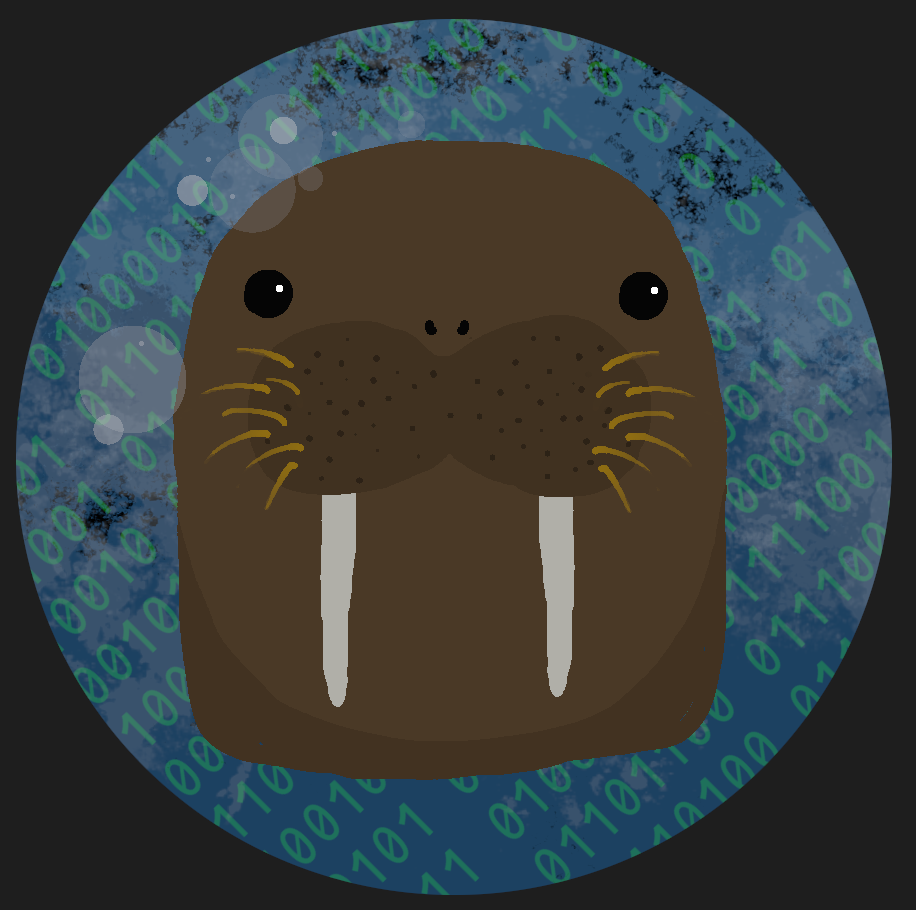Tinkering is all fun and games, until it’s 4 am, your vision is blurry, and thinking straight becomes a non-option, or perhaps you just get overly confident, type something and press enter before considering the consequences of the command you’re about to execute… And then all you have is a kernel panic and one thought bouncing in your head: “damn, what did I expect to happen?”.
Off the top of my head I remember 2 of those. Both happened a while ago, so I don’t remember all the details, unfortunately.
For the warmup, removing PAM. I was trying to convert my artix install to a regular arch without reinstalling everything. Should be kinda simple: change repos, install systemd, uninstall dinit and it’s units, profit. Yet after doing just that I was left with some PAM errors… So, I Rdd-ed libpam instead of just using --overwrite. Needless to say, I had to search for live usb yet again.
And the one at least I find quite funny. After about a year of using arch I was considering myself a confident enough user, and it so happened that I wanted to install smth that was packaged for debian. A reasonable person would, perhaps, write a pkgbuild that would unpack the .deb and install it’s contents properly along with all the necessary dependencies. But not me, I installed dpkg. The package refused to either work or install complaining that the version of glibc was incorrect… So, I installed glibc from Debian’s repos. After a few seconds my poor PC probably spent staring in disbelief at the sheer stupidity of the meatbag behind the keyboard, I was met with a reboot, a kernel panic, and a need to find another PC to flash an archiso to a flash drive ('cause ofc I didn’t have one at the time).
Anyways, what are your stories?
I’ve literally done the rm -rf / thing. I thought I was in a different subdirectory, but I was in / and did rm -rf .
When it didn’t return after half a second, I looked at the command again and hit CTRL+C about 20 times in the span of 3 seconds.
I had to rebuild the install, but luckily didn’t lose anything in /home.
I can’t even remember how I did this, but overwriting the partition table on the main production server at our small startup (back when “the server” would usually live on the premises of the startup). I remember my boss starting to hyperventilate from panic while I reconstructed it from memory / notes, and all the filesystems came back and he calmed down.
Same job, they gave me a little embedded-systems unit for me to use to build a prototype on. I hooked it up, nothing worked. I brought it back to them.
Hey, this one doesn’t work.
Huh… that’s weird, it was working before. Did you break it?
I don’t think so. Can I have one that works?
They literally told me, as they were handing me the second one: Okay, here’s another one. Don’t break it.
I figured it out literally seconds after breaking the second one… I was hooking it up to 12 volts of power when it needed 5. Second dead computer. Explaining that and that I needed a third one now was fun.
deleted by creator
Once I succumbed to a proprietary software’s allure, post-usage, I felt like a digital pariah! To rid myself of the taint, I wiped my system clean – reinstall time!
Years ago I was dual-booting with Ubuntu just to try out whatever this Linux thing was that all the nerds were talking about. Liked it and played around with it, but for whatever reason I wanted to go back to just Windows, I needed the space I had partitioned off or something, can’t remember why. So I just uninstalled or deleted the bootloader somehow (maybe I just deleted the Linux partition and expected the space to clear up like normal).
Go to restart the computer… oh shit. Ohshotohshitohshitohshit.
Years ago a friend mistakenly typed in killall5 as root on a remote server. Didn’t break things but resulted in extra work and effort.
I copied a program into the /bin/ folder while in a file browser with sudo permissions and somehow overwrote every file except the one I was moving. It, of course, couldn’t boot, but copying the bins from a live iso made it at least boot able. Reinstalled Linux after that, of course.
Just straight up overwriting boot sector and superblock of my hard drive thinking it’s the USB drive.
Udev tried to warn me, saying there’s no permission, and I just typed sudo without thinking.
Then after a second I remembered USB block devices are usually writable by users, but it was too late.
USB block devices containing mountable filesystems (on Desktop systems) can generally have those filesystems mounted and files written to them by regular users; But the block device itself stays only root writeable.
So, you need root privileges either way.
(Going from memory, but also decently confident)
The first time I installed Fedora after like a decade I updated to new minor version -> sudo reboot because I was already in the terminal -> reinstalled because it wouldn’t boot anymore
I’ve had the typical disasters with partition tables and boot loader mixups, but the one I keep coming back to is updating my Nvidia drivers too eagerly. Whether something gets messed up with an external monitor, or the laptop starts resisting switching away from the integrated GPU, or an electron app I use regularly that makes heavy use of 3D acceleration breaks, or I just need to bump the driver version in a reproducible system state record… it’s just bad news.
Been there, done that
I installed python one time
I was trying to extract some files from a a Linux image of one of those ARM boards. It was packed into the cpio format, and I had never used the format before. Of course I was trying to extract to a root owned directory and I sudo’ed it. I effed up the command and overwrote all my system directories (/bin, /usr, /lib, etc…). Thankfully I had backed up my system recently and was able to get it working again.
@fl42v I have thousands from my early days, but my only recent-ish one was pretty funny.
On an Arch install that hadn’t been updated for a while, in a rush, had an app that needed OpenSSL 3. Instead of updating the whole system, I just updated the openssl package.
*Everything* broke immediately. Turns out a lot of stuff depends on openssl. Who knew?
To fix, booted to the arch installer, chrooted into my env, and reverted to the previous version of the package — then updated properly.
Accidentally deleted system Python, which on GNOME meant my DE was toast as well. Luckily very freshly set up, so no harm done.
Related note, add this in your shell profile:
bash
export PIP_REQUIRE_VIRTUALENV=trueproper scripting language
set PIP_REQUIRE_VIRTUALENV trueWhat does it do? Is it some kind of failsafe?
Makes it so when you install packages with pip, it will only work if it’s using a virtual environment. This keeps any installed packages separate from ones your system uses.
If you want to learn about python virtual environments, check this out.
Nice! Thanks!
This was pre-linux for me but something you can still do in most distros so I think it’s a valid story.
In 1999 I was using Napster on computer running MS-DOS. I was 12 years old and an aspiring open media enthusiast/stupid script kiddie. I was using the file explorer interface in Napster and accidentally gave access to my entire C drive. I also had opened ports to share certain media and to fuck with my friends using daemon tools (back then you could do stupid stuff like control a friend’s desktop with certain versions of daemon tools). Immediately I started receiving packages called things like “sleep.tight.tiny.mite” and I knew I was fucked so I clicked in the Napster interface and clicked “delete” and deleted my entire active drive.
I panicked and installed the only operating system we had which was a random copy of Red Hat. When my dad came home I pretended like it had always had Linux on it. I do think he was more impressed than mad.
“Just pretend it’s always been Linux” is a bold move. I salute 12-year-old you o7











